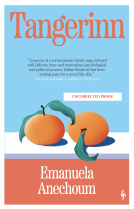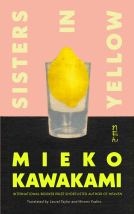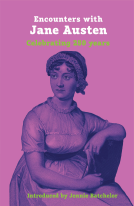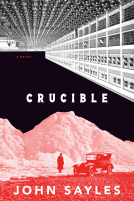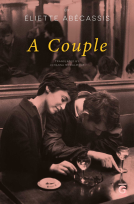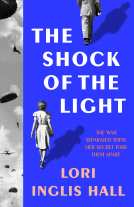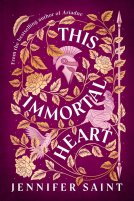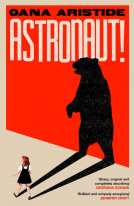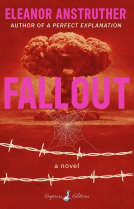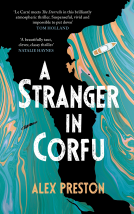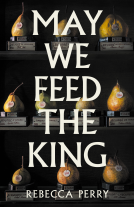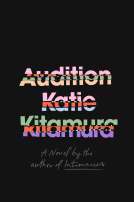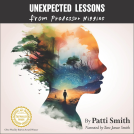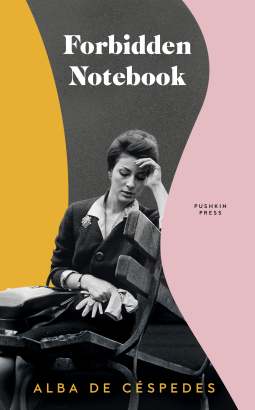
Forbidden Notebook
by Alba de Céspedes
This title was previously available on NetGalley and is now archived.
Send NetGalley books directly to your Kindle or Kindle app
1
To read on a Kindle or Kindle app, please add kindle@netgalley.com as an approved email address to receive files in your Amazon account. Click here for step-by-step instructions.
2
Also find your Kindle email address within your Amazon account, and enter it here.
Pub Date 2 Mar 2023 | Archive Date 7 Mar 2023
Talking about this book? Use #ForbiddenNotebook #NetGalley. More hashtag tips!
Description
Out running an errand, Valeria Cossati gives in to a sudden impulse - she buys a shiny black notebook. She starts keeping a diary in secret, recording her concerns about her daughter, the constant churn of the domestic routine and her fears that her husband will discover her new habit. With each entry Valeria plunges deeper into her interior life, uncovering profound dissatisfaction and restlessness. As she finds her own voice, the roles that have come to define her-as wife, as mother, as daughter-begin to break apart.
Forbidden Notebook is a rediscovered jewel of Italian literature, published here in a new translation by the celebrated Ann Goldstein and with a foreword by Jhumpa Lahiri. A captivating feminist classic, it is an intimate, haunting story of domestic discontent in postwar Rome, and of one woman's awakening to her true thoughts and desires.
Available Editions
| EDITION | Hardcover |
| ISBN | 9781782277507 |
| PRICE | £16.99 (GBP) |
| PAGES | 272 |
Average rating from 19 members
Featured Reviews
 Reviewer 205760
Reviewer 205760
"I was wrong to buy this notebook, very wrong. But it's too late now for regrets, the damage is done."
The Forbidden Notebook is a novel that has the quality of something meticulously embroidered: its writing so intentional, its insights so particular, that what you get in the end is something that, like embroidery, feels intricate and painstakingly made--also, so very impressive. The premise of The Forbidden Notebook is a seemingly straightforward one, and indeed one that has long been mined for narrative interest: a housewife becomes increasingly aware of her discontent with her life. And yet the way de Céspedes takes this premise and makes it her own is just remarkable; the narrative that she gives us here is a testament to how, in the right author's hands, a premise like this can provide the grounds for fresh, invigorating, and really profound storytelling.
What is most striking to me about this novel is its precision, the nuance and care with which it presents the interiority of its protagonist, Valeria. It's such a psychologically rich novel, written with a keen eye for the ways in which we are fallible, liable to contradict ourselves, to elide uncomfortable truths. We get to see this unfold through Valeria's entries, which she writes in her "forbidden notebook": entries where she is especially attuned to the dynamics of gender, labour, and money. The family is a microcosm for these issues, and the dynamics of Valeria's family in particular are no exception. There is her fraught, though deeply moving relationship with her daughter, who challenges what Valeria takes for granted about women's roles in romantic and professional spheres. There is Valeria's son, a kind of foil to her daughter, who is more embedded in what's considered "traditional," though this becomes complicated as the novel goes on. And of course there is Valeria's relationship to her husband: its romantic and sexual elements, its economic underpinnings (Valeria works to supplement her husband's income), and, by extension, the division of labour that is attendant to it. On top of all of this, which I thought was fascinating, I loved, too, both Valeria and de Céspedes's attention to spaces and the many ways in which they contour or bring into distinction the characters' identities and roles: the bedroom, the kitchen, the office, the streets.
"I often have a desire to confide in a living person, not only this notebook. But I've never been able to; stronger than the desire to confide is the fear of destroying something that I've been constructing day by day, for twenty years, and is the only thing I possess."
More broadly, The Forbidden Notebook is a very layered novel in the way that Valeria tries to understand herself through writing while we also try to understand her through that very writing. Her investment in her own project--however unclear that project is to her sometimes--is also our investment in that same project. Those two things--Valeria's reading of herself, and our reading of her--also enrich the story and add to its already complex dynamics. On the one hand you want to give credence to Valeria's understanding of herself, but on the other you become increasingly attuned to the fact--as Valeria herself does, sometimes--that she is often not truthful to herself, unwilling to put into writing what she really thinks or feels about something. What we get, then, is a tension that persists throughout the novel (one that Jhumpa Lahiri nicely points out in her foreword): a tension between the diary as this way of gaining deep, unfettered access to Valeria's psychology, and the diary as a kind of tool to avoid or gloss over certain truths by way of the editorializing or narrativizing that writing allows.
Incisive, lucid, searing, The Forbidden Notebook is the kind of novel that, to me, feels like a miniature: scaled down but at the same time speaking for something bigger than itself. It's a stunning character study, a feat of realist writing that's a testament to how utterly absorbing it can be to become invested in the small dramas of someone's everyday life.
"I was wrong to buy this notebook, very wrong"
4,5 - Alba de Cespedes (1911-1997) was a Cuban-Italian author who came to Italy as the daughter of the Cuban Ambassador to Italy (who had previously been President of Cuba). She was an anti-fascist, jailed for her activities in Italy and two of her novels were banned.
But reading 'The Forbidden Notebook' there is no way you could have guessed this biography, because actually it is a very small and intimate diary by a 43-year old mother who is struggling with getting older, with an empty nest syndrome, jealousy of her younger daughter, and hidden feelings of passion.
I enjoyed it very, very much. The writing is simple, but beautiful, reminiscent of Natalia Ginzburg and clearly an influence to Elena Ferrante (as often confirmed by Ferrante). It felt a bit gossippy at times, but this served to make relevant points on the position of women (in 1950s Italy) and the expectations society has.
I also listened to an audio-version in Italian on Audible and the 'narratrice' was outstanding.
Readers who liked this book also liked:
Jennie Batchelor, Julia Quinn, Natalie Jenner, Charlie Lovett, Talulah Riley, Janet Todd et al
Essays & Collections, Novellas & Short Stories, Women's Fiction
Patti Smith
Humor, Nonfiction (Adult), Parenting, Families, Relationships
